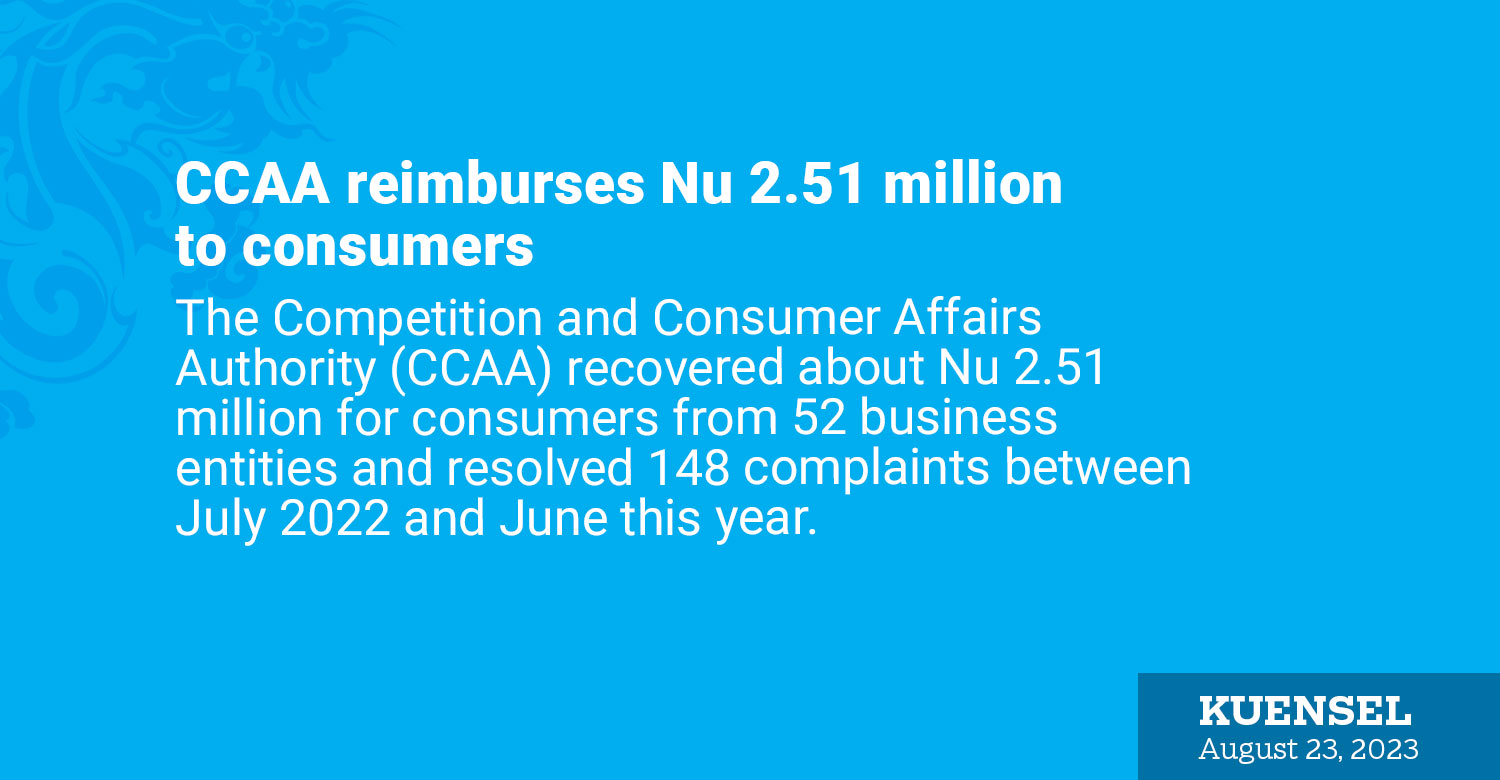… handles 148 complaints in a year
Thukten Zangpo
The Competition and Consumer Affairs Authority (CCAA) recovered about Nu 2.51 million for consumers from 52 business entities and resolved 148 complaints between July 2022 and June this year.
Of the 148 complaints, the authority stated that 90 percent were individual complaints where damages were sought while the remaining complaints required rectification, except for two pending cases. The authority said 52 business entities that had to refund were in violation of their contract.
According to the CCAA, the disputes between consumers and businesses that could not be mediated amicably by the authority were referred to the respective dispute settlement committee (DSC), and DSC enabled refund and compensation worth Nu 0.56 million to two affected consumers.
In the period, the CCAA took 55 cases of corrective actions, 12 on product repairs or replacement, 25 on rectifying the trade practice, 13 were referred to the relevant agency, eight cases referred to the DSC, and 35 provided with advisory service.
Thimphu had the highest number of complaints at 100 followed by Paro and Chhukha. There were no complaints from Gasa, Bumthang, Haa, and Tsirang. The medium of complaints used were official online services (website and email), which accounted for 40 percent, toll-free telephone (1214) with 30 percent, walk-in complaint accounting for 20 percent, and 10 percent from other open social media platforms.
With regard to general complaints, business firms had to rectify unethical practices including calibration of weights and measures, proper packaging and labeling of produce along with price affixation and issuance of purchase receipts to consumers.
The authority also carried out market surveillance in major markets across the country to identify and address potential issues with a total of 1,775 business firms in 17 dzongkhag towns and thromdes. In consultation with the Bhutan Food and Drug Authority, violators were fined Nu 0.21 million for sale of expired products.
From the market surveillance, the authority found 29 percent complaints on non-compliance with issuance of purchase receipts, 48 percent on product labelling, 67 percent on use of calibrated weights and measures, and 59 percent on improper display of products.
On online trade practices in e-commerce, the authority found 107 entities registered in the country, out of which only 52 were found operational. After each entity was monitored for compliance, the first rectification letters were issued to non-compliant e-commerce entities, followed by a second round to check compliance.
Ensuring a fair and secure marketplace for consumers, the authority dedicates to empowering consumers, resolving disputes, and promoting fair trade practices.
“By nurturing a culture of fair competition and informed consumer choices, Bhutan can envision a future marked by economic growth, innovation, and consumer welfare,” the authority stated.


